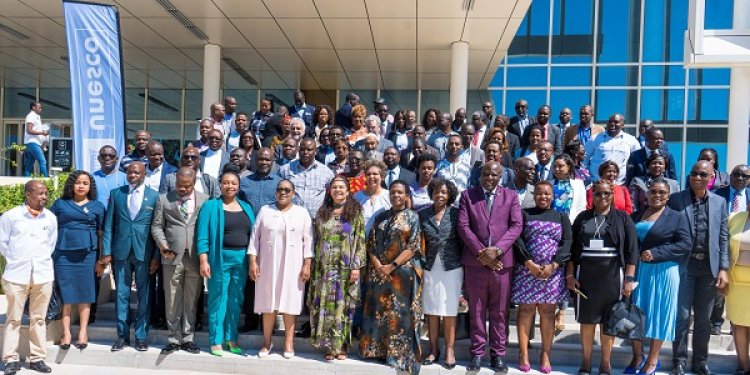Who believed or still believes that the Covid-19 vaccines contain a microchip that can track and control people?
Anyone still thinks that the vaccines will change their DNA? Does anyone believe there are people who die/died as a direct result of the Covid-19 vaccine? What’s the true motive behind claims that the Covid-19 vaccines contain cells from aborted foetus, or that they cause infertility?
These and other claims once spread like fire, and many fell for them. But if anything, health experts say, there is no microchip in the Covid-19 vaccines — It’s a conspiracy theory often linked to Bill Gates.
Besides, Covid-19 vaccines work by mimicking the virus’ surface proteins stimulating an immune response, and they do not work on the body’s DNA and none interferes with a human DNA.
Also read: Strides and hurdles in Rwanda’s quest for Malaria, NTDs-free status
Medical scientists further indicate that Covid-19 vaccines don’t contain foetal cells from any source, and trials show they do not impact fertility in any way.
“The original source [of the claims] is just a handful of individuals that are feeding the vaccine mistrust, and they are doing it for own goals whether it’s financial, I’m not sure. But mostly it’s about having the sense of power as in control of what people think and influencing (…),” says Dr. Salim S. Abdool Karim, South African clinical infectious diseases epidemiologist who is Director of the Centre for the AIDS Programme of Research.
“These people live in their own world, and in their world all these things are all real. They believe Bill Gates is sitting there and trying to control everybody with microchips and it’s real in their minds.”
Sadly, the claims spread through social media where there is no requirement for truthfulness or accuracy, he says, and the more conspiratorial they are the more they spread.
“The result is that they put people off the vaccines and fuel hesitancy. So it’s very important that we address these myths and misinformation and get everybody involved to put out the fire,” he adds.
So far, the true extent of effects spread of vaccine lies have had has not been documented. But it’s a question that preoccupies scientists in parts of the world, and more so in light of ongoing vaccine research and development efforts to tackle a number of diseases of concern.
The result is that those spreading lies put people off the vaccines and fuel hesitancy. So it’s very important that we address these myths and misinformation and get everybody involved to put out the fire
Dr. Salim S. Abdool Karim, Director, Centre for the AIDS Programme of Research
The need to devise ways to effectively counter vaccine-related misinformation took a centre stage at a roundtable discussions held virtually Thursday bringing together African and Indian health journalists, medical practitioners, researchers and academicians.
Jointly organized by International AIDS Vaccine Initiative (IAVI) and DataLEADS, a New Delhi-based platform promoting access to credible health information, the discussions were held in response to growing concerns that despite new vaccine technologies promising to help countries battle a spate of infectious disease and a rise in epidemic and pandemic disease threats, misinformation act as a stumbling block to vaccines access.
Dr. Abdool Karim, who is also Special Advisor on pandemics to the Director General of World Health Organisation (WHO), says that as vaccines get more sophisticated with scientists honing in on very specific targets, they are getting better, safer and easier to measure.
“But the problem is that they [vaccines] are getting less easy to understand. If you try to explain to someone how mRNA vaccines work as opposed to regular vaccines, it gets more challenging and so the misinformation grows as a result,” he said.
Also read: Rwanda’s elimination of Tsetse fly disease good for travel, tourism
So, how can scientists and policy makers generally address these concerns and effectively debunk misinformation related to vaccines?
Syed Nazakat, founder and Chief Executive at DataLEADs says promoting timely access to accurate vaccine information hold potential to keep lies at bay.
“What helped us is to have easy, digestible, short and accurate vaccine information, and most importantly to ensure that it is timely available to people because one of the things we learnt in the past couple of years is that it is lack of timely accurate information which provides the space for misinformation to emerge,” he says.
Furthermore, the drive to fight vaccine lies calls for investment of both time and resources in journalists, opines Dr. Jaya Shreedhar, Media Health Advisor at Internews who is also co-author of Let’s Talk Vaccines.
“You [scientists] need to be ready for media questions, because if we don’t answer their questions, they are going to go to someone who does, and that person will not be the one with the right answers.”
Also read: Zero deaths, admissions. Is Covid-19 fading in Rwanda?






